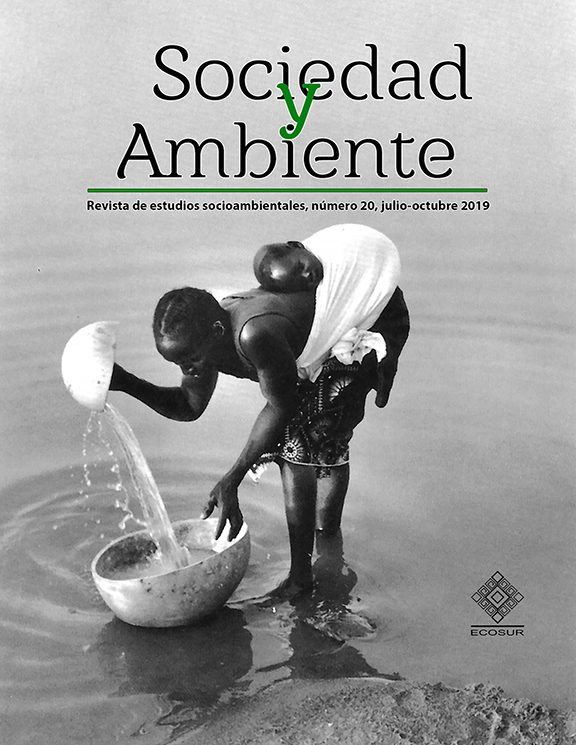Abstract
In this paper we describe the emergence and development of a new generation of studies in political ecology known as posthumanist political ecology. Based on a wide literature review, we trace its main influences, its central topics of analysis and the advantages it provides to understand our relationship with the environment, at a time when it is increasingly difficult to distinguish between the social and natural domains. Posthumanist political ecology makes use of concepts such as relational ontology, a more than human agency and performativity to overcome the limited definitions of what is human and assign variable degrees of agency to what is non-human. The development of adequate methodologies is an important challenge in this area, but it is necessary to consider that it is not about improving our representations of the non-human but rather of experiencing the environment in new ways. Posthumanist political ecology offers us new ways to think and explore our encounters with the non-human and, at the same time, to reflect on what it means to be human today.

Sociedad y Ambiente by ECOSUR is licensed under a Creative Commons Reconocimiento-NoComercial-SinObraDerivada 2.5 México License

